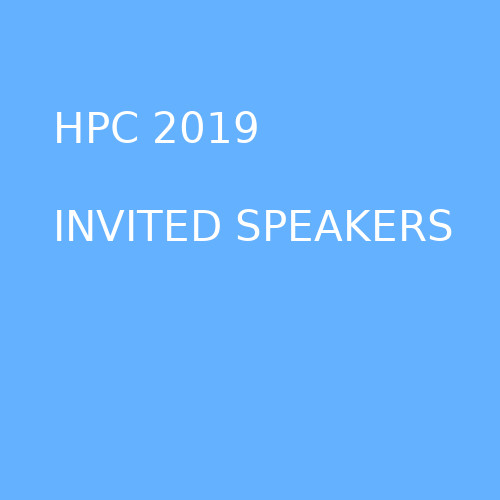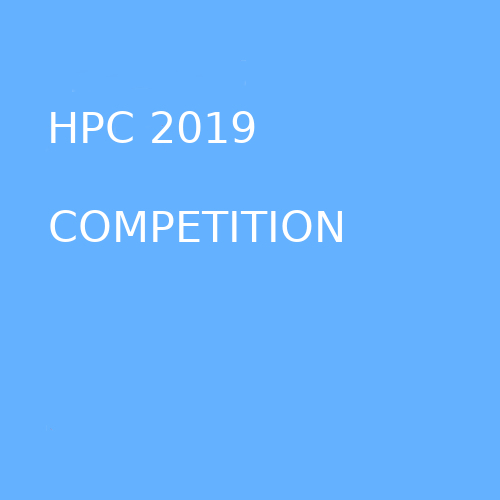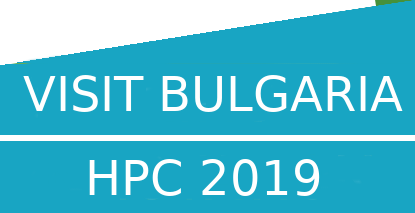Special Sessions
To contribute a Special session please provide the conference organizers with:
special session title, name and address of the organizer;
special session abstract;
titles and authors of a minimum of 4 presentations;
abstracts of presentations (optional).
Special session proposals due: April 05, 2019.
Special session acceptance decision: April 15, 2019.
Special Sessions currently announced:
Application of Artificial Intelligence in Optimization and Modeling
Organizers:
- Prof. Stefka Fidanova (IICT-BAS),
- Assoc. Prof. Vassia Atanassova (IIBE-BAS)
Many real world problems arising in engineering, economics, medicine and other domains need huge amount of computational resources. Such problems are frequently
non-convex, non-differentiable, discontinuous, noisy or dynamic which ask for adequate computational methods. The methods from Artificial Intelligence are possibility to find an approximate solution for reasonable time.
The list of topics includes, but is not limited to:
- combinatorial optimization
- global optimization
- multiobjective optimization
- optimization in dynamic and/or noisy environments
- large scale optimization
- parallel and distributed approaches in optimization
- random search algorithms
- simulated annealing
- tabu search
- other derivative free optimization methods
- nature inspired optimization methods (evolutionary algorithms, ant colony optimization, particle swarm optimization, immune artificial systems etc)
- hybrid optimization algorithms involving natural computing techniques and other global and local optimization methods
- optimization methods for learning processes and data mining
- Generalized Nets
- Neural Networks
- Game Method for Modeling
Advanced HPC Monte Carlo and Quasi-Monte Carlo Applications
Organizers:
- Prof. V. Alexandrov (STFC Hartree, UK),
- Prof. Aneta Karaivanova (IICT-BAS, Bulgaria)
This workshop provides a forum for presentation and discussion of state-of-the-art research in high performance computational Monte Carlo and quasi-Monte Carlo applications in various areas. The emphasis of the workshop is on advanced Monte Carlo and quasi-Monte Carlo methods and algorithms, large-scale simulations, architecture-aware and power-aware applications, and efficiency using hybrid computational infrastructure.
Treatment of Large Scientific and Engineering Problems – Challenges and Their Solutions
Organizers:
- Prof. Zahari Zlatev,
- Prof. István Faragó(Budapest University of Technology and Economics, Mathematical Institute, Department of Differential Equations, Hungary),
- Krassimir Georgiev (IICT-BAS, Sofia, Bulgaria),
- Tzvetan Ostromsky (IICT-BAS, Sofia, Bulgaria).
Treatment of large scientific and engineering problems – challenges and their solutions Papers discussing different important and complex problems, arising from different areas of science and engineering, are welcome in this special session. Possible contributions include, but are not limited to the areas of meteorological modeling, climate change studies and air pollution modeling. The problems that are to be treated by using such mathematical models are becoming greater and more complicated, because the increasing power of the modern supercomputers made it possible to develop, implement and use in practice more and more sophisticated mechanisms for the description of the underlying physical and chemical process. This, however, is possible under certain conditions, as follows:
- efficient numerical methods are selected,
- efficient parallelization techniques are implied,
- proper splitting procedures are applied in order to exploit better the specific properties of the different operators involved in the models,
- the cache memories of the target computer architectures are taken into account during the preparation of the codes.
Modeling, Simulation; Optimization in a Data-rich Environment – (MSO-DE)
Organizers:
- Wil Schilders,
- Christophe Prud’homme,
- Véronique Maume-Deschamps,
- Zoltán Horváth
MSO-DE is a fundamental tool to fully exploit the potential of High-Performance Architectures. MSO-DE is an essential mathware component for (i) the virtual co-development of products and systems, (ii) development of novel digital services to the consumer along the complete value chain, (iii) propose innovative industrial solutions within Industry 4.0. Acting upstream HPC with mathware is an essential key enabling technology that fuels the emergence of new algorithms and new paradigms in order to face the computational challenges ahead of us and to benefit from new (super-)computing architectures. The importance of MSO is being totally renewed by the availability of data, which requires a shared effort to deploy systematic and efficient methods to the European companies. Furthermore, business-to-business applications will require sharing not only data but also models in platforms. Finally, the emergence of innovative startups is clearly accelerated by the ability of the environment to establish connections with universities in order to provide advanced methods. The purpose of this MSO-DE mini-symposium is to emphasize these points. The Topics will be:
- MSO in an IoT environment
- Advanced numerical methods to reduce computational cost
- Data assimilation or data-driven MSO
- Digital twinning
- Textual data analysis and sensitivity analysis
The applications range is wide:
- Energy
- Health
- Industry 4.0
- Insurance
Molecular Modeling and Simulation
Organizers:




